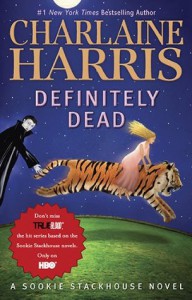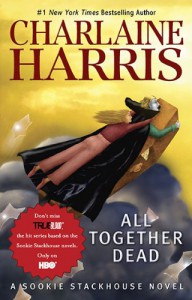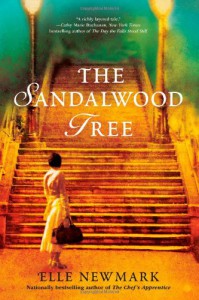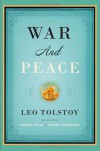
In nineteenth-century China, women in the Hunan province developed a secret code, nu shu, for communicating with each other. Kept away from work and politics, forced to spend their lives in the women's chamber with bound feet, they used nu shu to talk honestly about their lives. After her own feet are bound, Lily forms a latong relationship with Snow Flower, a girl born on the same day as her, a friendship that is supposed to last until death. But as their fortunes and lives change, Lily finds that her friendship contradicts what her new family would want.Snow Flower and the Secret Fan transported me back in time completely and utterly. I could hear the sounds of the paladins coming down the street, see the wonderful sights and smell the food. Lisa See didn't overuse description or adjectives, but managed to evoke the time period. She also captured how isolated and distinct from the rest of the world this part of China was, at times I felt as though I was reading about 15th or 16th century life, not 19th century life.She also did a good job describing the horrors of footbinding. Having already read Wild Swans, I thought I knew all about footbinding, but it is described in graphic detail in this novel. The descriptions were vivid and just reading them made me wince - feet broken intentionally? Blood and pus? Constant agony? It's hard for us in modern times and different cultures to appreciate exactly what about having bound feet would make a woman sexually appealing, but then I'm sure the same will be said in the future about many things we find attractive.I felt that the first half of the book was amazing, but that the pace trailed off as soon as Lily and Snow Flower settled down into their marriages. It was much more fun reading about them growing up, their family rituals and their negotiations for marriage. There were also one or two anachronisms that did jar a bit - at one point Lily 'swept up the trash' and after a novel full of 'bed business' she suddenly 'had sex', a word choice that didn't seem to fit with the Chinese reserve at all. I think I noticed these more because I'm a Brit reading the American version.
 I should start by saying that I was a bit hesitant to read Interview With The Vampire as the film is one of my all-time favourite films. Which is weird, as I don't like Brad Pitt or Tom Cruise that much, but I've loved the film for years now and was worried the book wouldn't live up to my expectations.The book opens with a vampire, Louie, telling his story to a young journalist in New Orleans. It covers him becoming a vampire and his life after, focusing on the moral dilemmas of killing humans and the relationships and power struggles within the vampire community.Whilst reading it I suffered from that problem you always get when you've seen the film or TV show first - I couldn't picture the characters in my mind as any different from the film. Louie was Brad Pitt in my head, and Lestat was Tom Cruise. Which was fine for me, as the film adaptation in this regard did seem faithful to the book, but perhaps I missed some parts of their characters because of this.The actual story itself was wonderful. I've read quite a few books with vampires in them and I think Anne Rice strikes the right balance between human and monster; her vampires aren't sparkly and even though they have human emotions they are still vicious killers. Claudia, who was made a vampire as a little girl, is a truly fascinating character and it's interesting to wonder what it must be like for your mind to become adult but not your body.The main problem I had with this book was that it was waffly. A character couldn't take an action without deliberating over it for several pages and then explaining him or herself to everyone in the vicinity over and over again. Louie was especially guilty of this. You know that bit at the end of the film where Lestat pops up and is listening to the recording of Louie's interview and he says "for centuries I've listened to this whining!" - that's the way I felt at the end of this book! Some parts are essentially nothing more than an extended monologue on morality and self-pity, which got very repetitive and boring to read. Louie wasn't great as the main character.I think I will read the next one in the series, as Lestat is a much more interesting character than Louie. I hope it has less whining.
I should start by saying that I was a bit hesitant to read Interview With The Vampire as the film is one of my all-time favourite films. Which is weird, as I don't like Brad Pitt or Tom Cruise that much, but I've loved the film for years now and was worried the book wouldn't live up to my expectations.The book opens with a vampire, Louie, telling his story to a young journalist in New Orleans. It covers him becoming a vampire and his life after, focusing on the moral dilemmas of killing humans and the relationships and power struggles within the vampire community.Whilst reading it I suffered from that problem you always get when you've seen the film or TV show first - I couldn't picture the characters in my mind as any different from the film. Louie was Brad Pitt in my head, and Lestat was Tom Cruise. Which was fine for me, as the film adaptation in this regard did seem faithful to the book, but perhaps I missed some parts of their characters because of this.The actual story itself was wonderful. I've read quite a few books with vampires in them and I think Anne Rice strikes the right balance between human and monster; her vampires aren't sparkly and even though they have human emotions they are still vicious killers. Claudia, who was made a vampire as a little girl, is a truly fascinating character and it's interesting to wonder what it must be like for your mind to become adult but not your body.The main problem I had with this book was that it was waffly. A character couldn't take an action without deliberating over it for several pages and then explaining him or herself to everyone in the vicinity over and over again. Louie was especially guilty of this. You know that bit at the end of the film where Lestat pops up and is listening to the recording of Louie's interview and he says "for centuries I've listened to this whining!" - that's the way I felt at the end of this book! Some parts are essentially nothing more than an extended monologue on morality and self-pity, which got very repetitive and boring to read. Louie wasn't great as the main character.I think I will read the next one in the series, as Lestat is a much more interesting character than Louie. I hope it has less whining.




















